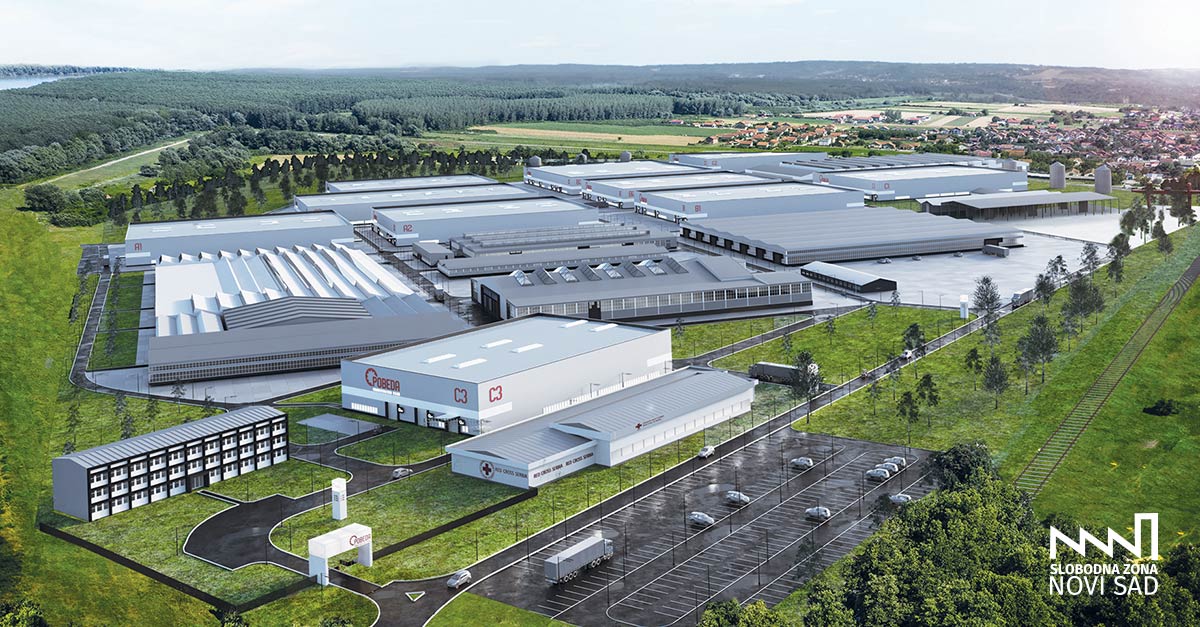FREE ZONES AND THEIR IMPACT ON INDUSTRIAL PARKS
Free zones are clearly defined geographical areas that are not a part of the customs territory of the country in which they are located. Every country in the world owns these territories, and in less than 40 years, their number increased from 800 to more than 5.400.
A series of economic activities such as production, finishing, processing, packaging services, trade, banking, insurance, transport services, storage, warehousing services, and other activities, are carried out in the free zones.
Customs and freight forwarding offices, as well as companies for quality control of goods can also be found in this area. Free zones are generally organized around areas suitable for trade (ports, airports, railways and international roads).
There are different terms for free zones such as:
– free customs zones
– free economic zones
– export processing zones
– foreign trade zones, etc.
All these terms indicate a territory with special benefits that a country gives, usually, to foreign investors. These benefits are reflected in enabling the import of goods without paying customs duties, taxes, fees and other duties, with a number of additional benefits.
WHY ARE FREE ZONES ATTRACTIVE TO COMPANIES?
Companies operating within the free zone are entitled to numerous fiscal and custom duty reliefs and benefits. By doing so, they manage to significantly reduce business expenses, which, of course, affects the profit.
According to the official report of the Free Zones Administration within the Ministry of Finance of Serbia, 215 multinational companies are operating and over 40,000 people are employed in the free zones. In the previous 3 years, the turnover was almost 14 billion euros.
The production and exports value within the free zones is a couple of billions of euros, which is a clear indicator of how much companies actually want this kind of business environment. Manufacturers are also attracted by the much easier administration as well as the benefits of building infrastructure.
Due to their benefits, free zones are often the choice of import-export companies who want to use them to gain a competitive advantage in the market. Free zones are supported by governments, which is a great indicator of stability and security for producers.
INDUSTRIAL PARKS – ECONOMIC DEVELOPMENT GENERATORS
On the other hand, we have industrial parks also having a very important role in the development of the local, national and world economy. They make the local market an attractive place for foreign investment, workforce and stronger competition.
Industrial parks are making everyday business easier for all manufacturers who choose to be their tenants. This is because reliable sources of electricity, water and gas are enabled, as well as dedicated infrastructure. Every room, office or hall within the park can be adapted and adjusted to the wishes of the tenants.
The impact of industrial parks is also reflected in the fact that they significantly improve the country in which they are located by adopting new technologies, following world industrial trends and creating a stimulating environment.
Manufacturers always have the choice to lease some of the existing space within the park or to request that a specific and customized space be built for their needs. Whichever option they choose, they will enjoy the same benefits as all the other tenants of the park.
HOW DO THE FREE ZONES AFFECT INDUSTRIAL PARKS?
Free zones and industrial parks have a lot in common. They are mainly located in the industrial zones, close to railways, ports, airports and international roads. Both concepts have the effect of reducing the costs of their users as well as providing various benefits.
They have an equally good effect on the inflow of foreign direct investments, job creation and, in general, on the economic development of the local and national economy. We can surely say that free zones and industrial parks complement each other.
Since they are located in a relatively similar area and in order for the state to increase the overall effect of parks and free zones on the economy, it often happens that the free zone (if not already) extends to the territory of the industrial park.
This brings up a number of benefits and new opportunities for the residents, but also for the park itself. A signal is being sent for many companies and manufacturers to transfer or start their business in the industrial park, realizing all the mentioned benefits of free zones and parks.
By doing so, manufacturers and companies can with much more ease cope with the challenges that are present in today’s time of automation, new technologies and great competition in the manufacturing and other industries.
Industrial park Pobeda has recently become part of the Novi Sad Free Zone, which has created conditions for additional inflow of foreign investments and significant economic growth of the entire country. A major business opportunity has been created for the park itself, but also for all current and potential tenants.
In this way, Pobeda has become one of the few industrial parks in the country that can provide tenants with logistics and production capacities, as well as warehousing and office spaces, thus enabling them to improve their business and gain a greater competitive advantage.
 Schedule a visit
Schedule a visit 

